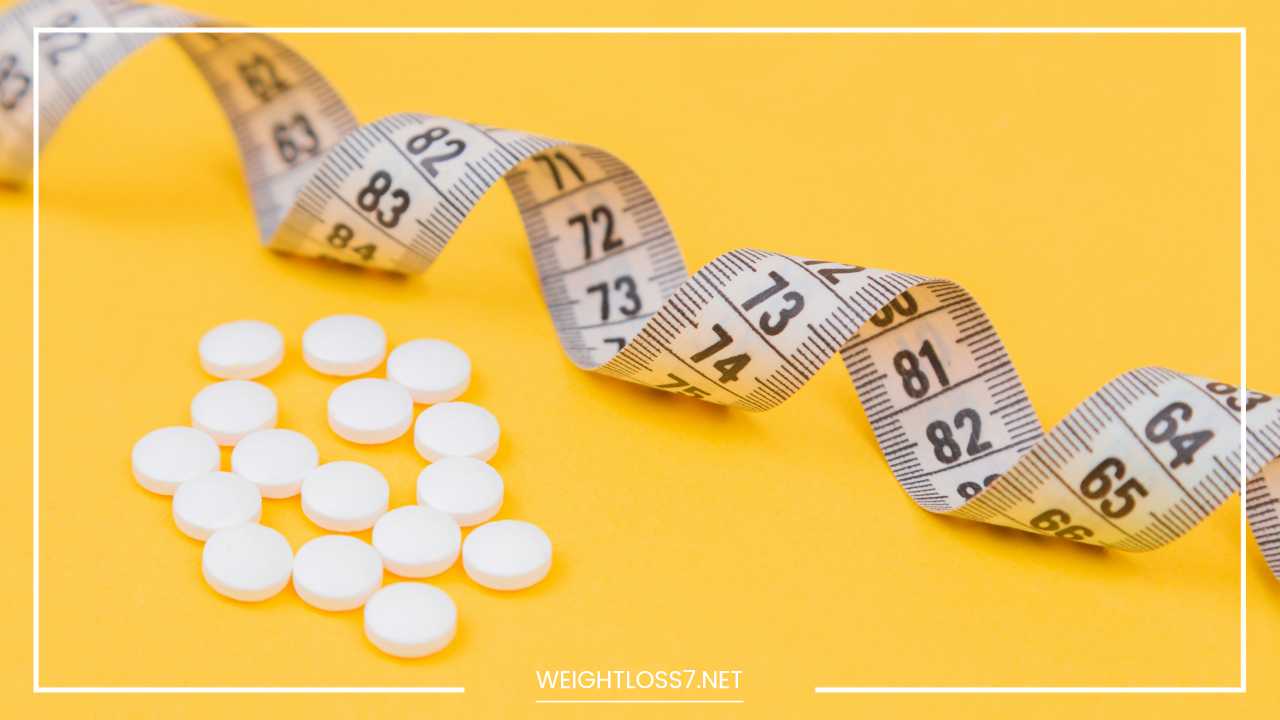Diet Pills for Weight Loss: Facts, Risks, and Safe Alternatives

Diet Pills for Weight Loss
Weight Loss Diet Pills: Unveiling the Myth and Embracing Sustainable Solutions
In our fast-paced world, the desire for a quick and easy path to weight loss reigns supreme. Diet pills, with their promises of effortless pound-shedding, often appear as the answer to our prayers. But before you’re lured by the siren song of these convenient capsules, let’s embark on a journey to unveil the truth behind diet pills.
We’ll dissect the allure, expose the reality, and ultimately, guide you towards safe and sustainable solutions for achieving your weight loss goals.
The Allure of Diet Pills: A Symphony of Tempting Promises
Diet pills come in a multitude of forms, each promising a specific solution to your weight woes:
- Appetite Suppressants: These claim to curb your hunger pangs, making you feel fuller for longer stretches, thereby reducing calorie intake.
- Fat Burners: These entice us with the idea of a boosted metabolism, leading to the magical burning of calories at an accelerated rate.
- Carb Blockers: These aim to prevent the absorption of carbohydrates from our diets, essentially hindering the intake of calories from this source.
The appeal is undeniable. Imagine simply swallowing a pill and watching the weight effortlessly melt away. Unfortunately, the reality of diet pills paints a far less glamorous picture.
The Reality of Diet Pills: Separating Fact from Fiction
Here’s a dose of reality to dispel the myths surrounding diet pills:
- Limited Effectiveness: Many diet pills offer minimal, if any, long-term weight loss benefits. The effects they produce are often fleeting, and the lost weight tends to rebound quickly once you stop taking them. Studies have shown that the average weight loss with diet pills is a mere 2-5% of body weight, a number that pales in comparison to the commitment required for healthy and sustainable weight loss.
- Unrealistic Expectations: Diet pills are not a magic bullet solution. Sustainable weight loss requires a multi-pronged approach that incorporates a healthy diet, regular exercise, and lifestyle modifications. Diet pills, at best, can be a supportive element in this journey, but they are not a replacement for the core elements that drive lasting weight loss.
- Potential Side Effects: Many diet pills come with a baggage of unpleasant side effects. These can range from common annoyances like headaches and nausea to more concerning issues like insomnia, anxiety, and even heart palpitations. Some diet pills can also interact with medications you’re already taking, posing serious health risks.
- Regulation Concerns: The effectiveness and safety of many diet pills raise red flags. While the FDA (Food and Drug Administration) regulates these products, some manage to slip through the cracks, potentially containing harmful ingredients or delivering unproven claims. Additionally, some diet pills are sold as dietary supplements, which have a less stringent regulatory pathway compared to prescription drugs.
Unveiling the Science Behind Diet Pills: A Critical Examination
Let’s delve deeper into the science behind the various types of diet pills and understand how (or why) they might work:
- Appetite Suppressants: These often work by influencing hormones related to hunger, such as leptin and ghrelin. Some appetite suppressants may also increase feelings of fullness by promoting the release of gut hormones like cholecystokinin (CCK). However, the effectiveness of appetite suppressants varies widely, and some can have significant side effects like dry mouth, constipation, and difficulty sleeping.
- Fat Burners: These frequently contain ingredients like caffeine, green tea extract, and conjugated linoleic acid (CLA). While these ingredients might have some thermogenic properties (meaning they generate heat in the body), the actual impact on calorie burning is often minimal and inconsistent. Additionally, some fat burners can raise heart rate and blood pressure, posing health risks for individuals with pre-existing conditions.
- Carb Blockers: These aim to inhibit the enzyme amylase, which is responsible for breaking down carbohydrates in the digestive system. However, studies on the effectiveness of carb blockers are inconclusive, and they can cause digestive issues like bloating and gas.
Finding Sustainable Solutions: Building a Healthy Foundation for Weight Loss
Now that we’ve unveiled the limitations of diet pills, let’s explore effective and sustainable pathways to weight loss:
- Embracing a Balanced Diet: Prioritize whole, unprocessed foods like fruits, vegetables, lean protein sources, and whole grains. These foods are packed with essential nutrients that keep you feeling full and support your overall health. Limit processed foods that are high in sugar, unhealthy fats, and refined carbohydrates. These foods are often calorie-dense and contribute to weight gain.
- The Art of Portion Control: Be mindful of serving sizes and how much you’re eating on a daily basis. Use smaller plates to create a sense of abundance with less food. Practice mindful eating, focusing on the taste and texture of your food, and avoid distractions like watching TV while eating.
- Move Your Body: Regular physical activity is a vital component of sustainable weight loss. Find activities you enjoy, whether it’s brisk walking, swimming, dancing, or cycling. Aim for at least 150 minutes of moderate-intensity exercise or 75 minutes of vigorous-intensity exercise spread throughout the week. Strength training is also crucial for building muscle mass, which can further boost your metabolism and help you burn more calories at rest.
- The Power of Hydration: Drinking plenty of water throughout the day keeps you feeling full and helps your body function optimally. Aim for 8 glasses of water a day, and adjust based on your activity level and climate. Water can also help curb cravings and reduce calorie intake.
- Prioritizing Sleep: Chronic sleep deprivation disrupts hormones that regulate hunger and metabolism. Aim for 7-8 hours of quality sleep each night. Establishing a regular sleep schedule and creating a relaxing bedtime routine can significantly improve your sleep quality.
- Stress Management: Stress can lead to emotional eating and unhealthy food choices. Find healthy ways to manage stress, such as yoga, meditation, deep breathing exercises, or spending time in nature.
- Building a Support System: Surround yourself with supportive people who encourage your weight loss goals. Join a weight loss group, find an accountability partner, or talk to a therapist for emotional support.
Seeking Professional Guidance: A Roadmap to Success
Consulting a healthcare professional can be invaluable on your weight loss journey:
- Doctor’s Expertise: A doctor can assess your overall health, identify any underlying medical conditions that may be contributing to weight gain, and recommend a safe and personalized weight loss plan.
- Registered Dietitian’s Guidance: A registered dietitian can create a customized meal plan that meets your nutritional needs and preferences while supporting your weight loss goals.
- Tailored Approach: A healthcare professional can tailor their recommendations to your specific circumstances, considering your medical history, activity level, and weight loss goals.
Addressing Underlying Medical Conditions:
Certain medical conditions can contribute to weight gain, making it challenging to lose weight. These conditions can include:
- Hypothyroidism: An underactive thyroid can slow down your metabolism, making it difficult to burn calories.
- Polycystic ovary syndrome (PCOS): This hormonal imbalance can lead to weight gain, insulin resistance, and difficulty losing weight.
- Sleep apnea: This sleep disorder can disrupt hormones that regulate appetite and metabolism.
If you suspect an underlying medical condition is affecting your weight, discuss it with your doctor. Treating the underlying condition can significantly improve your weight management efforts.
Mindset Matters: Cultivating a Sustainable Approach
Developing a healthy and sustainable mindset is crucial for long-term weight loss success. Here are some tips:
- Focus on Progress, Not Perfection: Weight loss is a journey, not a destination. There will be setbacks along the way. Focus on celebrating your progress, no matter how small, and learn from challenges to stay motivated.
- Develop a Positive Relationship with Food: Food should be viewed as fuel for your body, not the enemy. Practice mindful eating and focus on the nourishment food provides.
- Self-Compassion is Key: Be kind to yourself throughout this process. Forgive yourself for occasional slip-ups and recommit to your goals.
Identifying Red Flags: Warning Signs of Unhealthy Diet Pills
When considering diet pills, be on the lookout for these red flags:
- Promises of Quick and Easy Weight Loss: If a diet pill promises dramatic weight loss in a short period, it’s likely too good to be true. Sustainable weight loss is a gradual process.
- Testimonials Over Science: Be wary of diet pills that rely heavily on testimonials instead of scientific evidence.
- Ingredients You Don’t Recognize: Always research the ingredients in a diet pill before taking it. Avoid products with unknown or potentially harmful ingredients.
- Claims Seem Too Good to Be True: If the claims sound too good to be true, they probably are. Be skeptical of any diet pill promising effortless weight loss without lifestyle changes.
Embracing a Sustainable Approach
Diet pills are a mirage in the desert of weight loss. While they may offer a temporary fix, they lack the long-term effectiveness and safety to be a viable solution.
Instead, prioritize a holistic approach that incorporates a healthy diet, regular exercise, adequate sleep, stress management, and a supportive network.
Consulting a doctor or registered dietitian can provide valuable guidance and create a personalized plan for your weight loss journey. Remember, weight loss is a marathon, not a sprint. Embrace healthy habits that you can stick with for the long term.
Additional Tips for Success:
- Track Your Progress: Keeping a food journal or using a weight loss app can help you track your calorie intake, exercise routines, and weight changes. This can be a powerful tool for staying motivated and identifying areas for improvement.
- Cook More at Home: Preparing meals at home allows you to control ingredients and portion sizes. Experiment with healthy recipes that are both delicious and nutritious.
- Find an Exercise Buddy: Having a workout partner can increase your motivation and accountability.
- Celebrate Non-Scale Victories: Weight loss is not just about the numbers on the scale. Celebrate non-scale victories like increased energy levels, improved sleep, or fitting into your favorite clothes again.
- Make Gradual Changes: Don’t try to overhaul your entire lifestyle overnight. Start with small, sustainable changes that you can gradually build upon over time.
Remember: You are not alone on this journey. There are many resources available to support you, from online communities to weight loss groups to healthcare professionals. Reach out for help and encouragement whenever you need it.
The Final Word: Prioritizing Your Health and Well-being
Ultimately, the goal is not just to lose weight, but to improve your overall health and well-being. By embracing a healthy lifestyle, you’ll not only achieve your weight loss goals but also gain a lifetime of benefits.
You’ll have more energy, feel better about yourself, and reduce your risk of chronic diseases. So, ditch the diet pills and embark on a journey of self-discovery and healthy living. Your body will thank you for it.

















